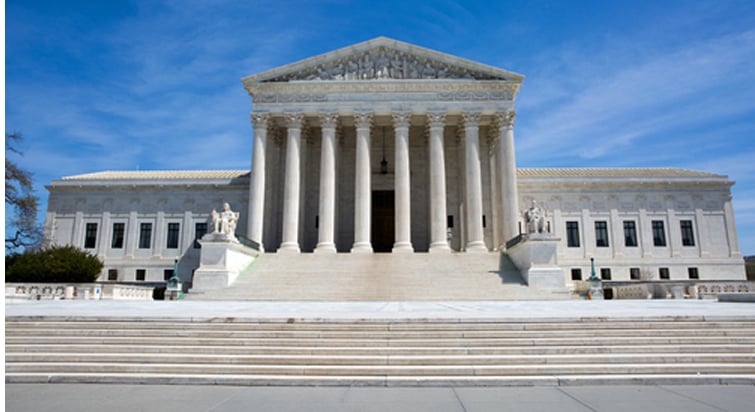Supreme Court's most pro-religion justices since WWII sit on the current court, new study says

Image from Shutterstock.com.
The U.S. Supreme Court has supported religion in 81.3% of the religious cases under the leadership of Chief Justice John G. Roberts Jr., a big jump from prior years.
The study, set to be published in the Supreme Court Review, has the statistics: The Supreme Court supported a religious outcome in 45.5% of the religion cases under Chief Justice Earl Warren, in 51.4% of the cases under Chief Justice Warren Burger, and 58.1% of the cases under Chief Justice William H. Rehnquist.
The New York Times reports on the findings.
The study also found that the types of cases have changed since the Warren Court, when all the pro-religion rulings benefited religious minorities or dissenting religious groups. Before the Roberts Court, six wins were for mainstream Christian plaintiffs, while two wins were for plaintiffs outside the mainstream.
The five most pro-religion justices during the study time period all sit on the current court, according to the study’s ranking of justices by the percentage of pro-religion votes. Those justices are Clarence Thomas, Samuel A Alito Jr., Neil M. Gorsuch, Roberts and Brett M. Kavanaugh.
“While there are some differences among these justices, and Kavanaugh has been involved in only a handful cases, they are clearly the most pro-religion justices on the Supreme Court going back at least until World War II,” the study said.
Sixth on the ranking was Justice Antonin Scalia, who died in 2016.
The study examined every Supreme Court case that produced a judicial opinion relating to the free exercise or establishment clause from the 1953 term to the 2019 term, excluding cases decided without oral argument. The data encompassed 824 votes case by 31 justices.
The study authors are Lee Epstein, a professor at the Washington University at St. Louis, and Eric A. Posner, a professor at the University of Chicago Law School. The professors raised the possibility that religiousness has become a screening mechanism by Republican presidents.
“A combination of religious devotion and conservative views may all but guarantee that a nominee will support conservative values on the Supreme Court and will not drift left, as so many Republican appointees did in an earlier era,” Epstein and Posner wrote.
“Meanwhile, attacking a political nominee on religious grounds remains politically taboo, as was so clear when liberals found themselves unable to mount serious opposition to Amy Coney Barrett, even though many of her supporters made no secret of the fact that they supported her because of her conservative religious views,” they wrote.



